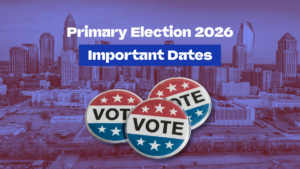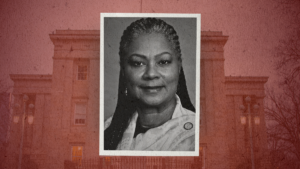Source: North Carolina Health News
In the two months after state Republicans implemented a sweeping abortion ban, the number of abortions performed in a formal health care setting in North Carolina declined substantially, according to data from the Guttmacher Institute.
More than 4,200 abortions were performed statewide in June, according to the data. That number fell to 2,920 in July after harsh new restrictions went into place, and stayed lower at around 3,000 in August. Overall, the estimated number of abortions in the state dropped 28 percent from June to August.
The harsh new restrictions passed by Republicans include a ban on abortions after 12 weeks and an onerous and medically unnecessary new requirement that abortion patients show up for an in-person consultation at an abortion clinic at least 72 hours before their abortion.
According to Isaac Maddow-Zimet, a data scientist at the Guttmacher Institute, the data suggests that the new restrictions are “too much of an obstacle for many folks in North Carolina and those traveling to North Carolina to be able to overcome to receive care.”
Maddow-Zimet also said the data showed no increases in abortions provided in nearby states like Virginia, D.C., or Maryland that would offset the decline in North Carolina. This suggests that patients denied abortions in North Carolina had to seek help outside a formal health care setting or were forced to continue a pregnancy they did not want.
Matt Zerden, an OB-GYN and abortion provider, said he has seen a number of patients come in for their first appointment at a Planned Parenthood South Atlantic clinic but not make it to their second scheduled appointment.
“I don’t know what happens to them,” Zerden admitted. “Is that a situation with a forced birth?”
Zerden notes that Planned Parenthood and other abortion providers have valiantly tried to adapt to the new laws so that the patient process remains as streamlined as possible.
“But we can’t change the fundamentals of an unnecessary two-visit process that is twice the checking in, twice making someone come in and go through all the steps, twice the administrative burden,” he said. “That ends up in inefficiencies, and at a time when health care is strained.”





